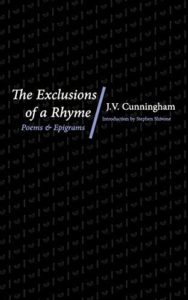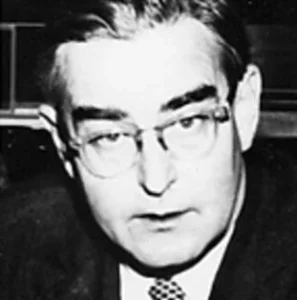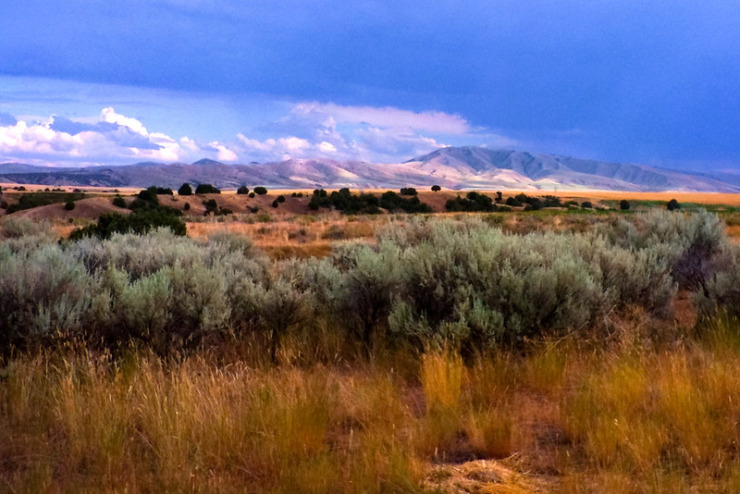J.V. Cunningham defied fashion to write formalist poetry with great precision
Poet J.V. Cunningham (1911-1985) is almost unknown today. His poetry zigged when the fashion said zag; he was a formalist when modernism and free verse had triumphed. And yet (and a discussion of his poetry should always be followed by “and yet”), while he was still alive, his poetry was considered among the very best being published.
His teacher and mentor Yvor Winters considered Cunningham to be one of the finest writers working in the English language. Critics said his poetry would still be read 50 years after his death. Others called him the most talented of his generation. But today he’s barely remembered.
Wiseblood Books has issued a new edition of Cunningham’s The Exclusions of a Rhyme: Poems and Epigrams, first published in 1960. The volume brought (and brings) together four poetry collections by Cunningham: The Helmsman, The Judge is Fury, Doctor Drink, and Trivial, Vulgar, and Exalted. Also included were a poem to his wife and several translations of Latin poems.
The collection lays out the poems and epigrams in all their formalist glory. Cunningham is nothing if not precise and chiseled. Not a single word is wasted, to the point of almost sounding cold (a comment Cunningham himself acknowledged and didn’t disagree with). His poems are not about great feelings and emotions; he tells stories and makes observations, and the poems contain almost a ruthlessness in how exact they are. Their rhyme and meter hark back to the poetry of the 19th century and earlier, but their focus on the bare and simple marks them as fully 20th century.
The Chase

I’d swear she neither saw nor heard
But ran for pleasure, unconcerned,
Erratic as a garden bird.
Timid and shy, but not afraid.
Say that her life was in the chase,
Yet it was nothing that God made
But wild blood glorying in a race
Through the cornfields of the lower Kaw,
My horse was tired before she fell.
Love does not work by natural law,
But as it’s just as well,
For when the doges retreated, fought,
And circled the embarrassed doe,
The doe moved only to be caught,
Quite pleased to be encircled so,
And I sat still, gun at my side.
Esteem and wonder stayed desire.
The kill is down. Time will abide.
Time to remember and inquire.
The poems cover the seasons, like “The Dog-Days”; dreams; romantic and platonic love; elegies; death and remembrance; nature and landscape in Montana; apology and forgiveness; time; and many of the other subjects common to poetry. All are depicted and developed within the boundaries of formalism. His Latin translations include poems from Horace, Martial, and St. Ambrose. (It should be noted that Latin poems are popular with formalist poets; Dana Gioia is publishing a translation of Seneca’s “The Madness of Hercules” this spring.) Cunningham’s epigrams also cover a variety of subjects, and some are long enough to be considered poems.

J.V. Cunningham
Cunningham was born in Maryland but raised in Montana (many of his poems are set in that state). He studied under Yvor Winters at Stanford University, where he earned his B.A. and Ph.D. degrees. He taught at several universities until landing at Brandeis, where he worked from 1953 until his retirement in 1980. In addition to his poetry collections, he published a collection of his essays and Tradition and Poetic Structure. He received several fellowships and grants, including from the Guggenheim Foundation and National Endowment for the Arts. He died in Massachusetts in 1985.
For those unfamiliar with his work (like myself), The Exclusions of a Rhyme introduces a poet who persisted in writing formalist poetry when the poetic fashion was anything but formalist. Cunningham didn’t seem to mind; his work was nevertheless recognized and celebrated. And he wrote with an almost exquisite care for words and language.
Photo by Dawn Ellner, Creative Commons, via Flickr. Post by Glynn Young.
How to Read a Poem uses images like the mouse, the hive, the switch (from the Billy Collins poem)—to guide readers into new ways of understanding poems. Anthology included.
“I require all our incoming poetry students—in the MFA I direct—to buy and read this book.”
—Jeanetta Calhoun Mish
- Poets and Poems: Peter Murphy and “You Too Were Once on Fire” - October 14, 2025
- “Your Accent! You Can’t Be from New Orleans!” - October 9, 2025
- Poets and Poems: Donna Vorreyer and “Unrivered” - October 7, 2025


Mary Sayler says
Good one, Glynn! Thanks. I’d never read this poet’s work. Reminds me of Richard Wilbur – another traditionalist whose work is worth reading and rereading.
Glynn says
I like Wilbur, too. And you’re right – there are similarities between the two. Thanks for reading, Mary!